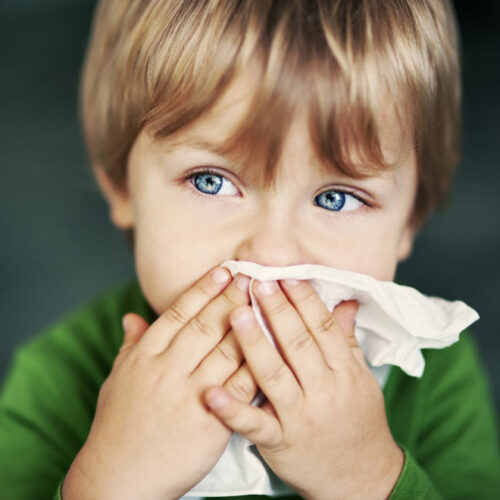Eating for better hormone health
Ann Marie McQueen, health and wellness journalist and founder of Hotflash inc, explores the complex relationship between diet, hormones, and health during various life stages, highlighting key insights from experts in the field.

No matter our age, every single bite we eat is having an impact on our hormones. It’s a big responsibility and a lifelong journey, this job of figuring out how to eat right down to our cells.
But feeling better now and living a healthy life, longer, are the rewards. So it’s well-worth it.
Something everyone has to watch out for these days, no matter where their reproductive journey is at, is insulin resistance. This happens when cells in our body become less sensitive to insulin, meaning they have to take up more glucose from the blood, prompting the pancreas to make more insulin. This not-great loop serves as a warning signal, because it is a precursor to pre-diabetes, diabetes and indeed many diseases.
There are a number of causes of insulin resistance, including a diet high in processed foods, including vegetable oils, carbohydrates and sugary foods, including juice. Lack of sleep and sedentary lifestyle contribute, as do genetics and a range of other factors. And in perimenopause, as New Zealand-based naturopathic doctor and author of hormone repair manual Lara Briden writes, women are particularly vulnerable because progesterone starts to fall, estrogen starts to rise and fall – and both have been responsible directly or indirectly in regulating how insulin works in our bodies. There are also links between insulin resistance in PCOS and hormonal birth control, so if those are things you are dealing with, it’s best to be extra vigilant.
Many women find that hormonal disruptions of the years leading to menopause, which is marked by 12 months without a period, are often marked by a stubborn shift in fat distribution from hips to belly. Weight around the middle can be caused by inflammation in the body, and it can lead to more inflammation in the body, creating a frustrating loop that it can be hard to get out of. Often women do more of what they’ve always done – eating less, working out more – and find that it just doesn’t work, but they don’t know what else to do.
Here are a few important steps to take from some of the top experts in the field.
Eat to beat insulin resistance
The obvious ways are to cut down on processed food, rice, potatoes and bread, as well as sugar, fruit juice and even fruit. Abu Dhabi based integrative and functional dietitian Farah Hillou recommends going a few easy steps further for avoiding or reversing insulin resistance, and prediabetes too. These include increasing your body’s energy demands by going for a walk after meals, eating green leafy vegetables first, followed by fat and protein, then carbs, and drinking some apple cider vinegar (with mother) in a glass of water before eating.
Focus on what you can add, not subtract
Karen Newby, nutritionist and author of the 2022 book Natural Hormone Methods, says often women are eating low-nutrient food, low-protein food, and foods that are low in phytoestrogens. Tofu, tempe, edamame, linseed and flaxseed, for example, are effective ways to boost your estrogen naturally.
By shifting the emphasis to adding a range of therapeutic, nutrient-dense foods, eating for perimenopause becomes more about fuel and less about deprivation. And here’s the trick: focus on them from breakfast. Adding more protein from the start of the day, for example, will reduce sugar cravings throughout.
“If we have 80 percent helpful foods, we can deal with 20 percent rubbish,” Karen told the Hotflash inc podcast.
Take a pro-metabolic view of your body
Many women hit perimenopause with decades of bad habits, having punished their bodies with dieting, over-exercising and major amounts of stress for years. Untangling this and learning how to support the body – by eating enough, for example, or figuring out sleep – is the approach that Kate Deering, a personal trainer and holistic nutritionist based in San Diego takes and shares in her book How to Heal Your Metabolism. Taking an energetic approach means shifting to how best to support energy production in your cells. When they are producing adequate energy, then all your body systems have the right fuel to function. In this case, learning how to manage or reduce stress can be just as important as eating more nourishing foods.
Cut back on ultra processed foods
Ultra Processed foods are by their nature refined. That means we can eat a lot more of them, unlike fiber-rich vegetables. As nutritionist Karen says, they destabilize our blood sugar, sparking lows – including irritability and mood swings – that cause more cravings. And when we are low in blood sugar, our cortisol, adrenaline and noradrenaline all rise, having a vasodilatory effect. We have hot flashes during perimenopause because our estrogen is dropping, impacting our thermoregulatory centers. But a lot of women find that when they cut down on processed foods and sugar, their hot flashes improve, and when they eat them, they worsen.
We really are set up to fail when we eat like this.
They are also full of chemicals that overload our already taxed-to-the-max liver, which has been working overtime to process everything we’ve thrown at it in our younger years. All you have to do is focus on nutrient-dense, fiber-rich whole foods, protein and healthy fats, and see what happens.











Comments